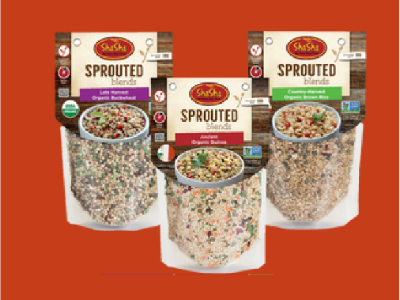As obesity levels and heart disease began to rise in the ‘70s, food manufacturers convinced us that it was the fat in food that was responsible. They weren’t wrong either and this sparked the tsunami of fat-free or low-fat products we still enjoy today. Trouble is; when you take the fat out of food, you take out the taste too. Bland isn’t exactly appealing, even if it is fat free! To compensate, manufacturers turned to sugar and corn syrup to add the flavor punch that makes products appealing.
Sugar, sugar everywhere…
Sugar is in just about everything from low-fat mayonnaise to low-fat yogurt. Of course, you may be cutting down on sugary drinks, sodas and candy, but you are still consuming a vast amount of sugar in products you don’t expect to find it in. This accounts for our ever-increasing obesity and diabetes rates, despite the fact that so many low-fat and fat-free products exist on the market.
Some products that are endorsed by the heart foundation (thanks to their low-fat content) fall into this category where the increase in sugar outweighs the benefits that a lower fat content brings.
This means that about half the sugar you consume every day comes from products you didn’t even know contained sugar. For example, if you choose to eat a hamburger, you will find sugar in the bun, in the ketchup and even in the hamburger meat. A Big Mac contains 9 grams of sugar which is about a third of your recommended daily intake. Sugar can be found in just about every product in your local supermarket from barbeque sauce to salad dressing.
Why is sugar bad for us?
Sugar is a simple carbohydrate made of glucose and fructose. When these compounds enter the gut, the bond is broken and glucose goes on to store fat under the skin (subcutaneous fat). This fat is mostly harmless and collects on the thighs and buttocks. The fructose goes on to create visceral fat which settles around your organs and increases your risk of heart and liver disease, diabetes and dementia.
Visceral fat also releases hormones into the body which cause inflammation and it increases insulin resistance which negatively affects that functioning of the organs and can lead to diabetes, cancer, dementia, heart disease and hypertension.
Sugar provides your body with ‘empty calories’ which means that it doesn’t provide any nutrients, unless you are bacteria in which case sugar provides all the food you need to rot those teeth!
Eating too much processed sugar can also lead to a plethora of cancers as sugar creates heightened insulin levels which promote the growth of tumors. Sugar also stimulates the same ‘reward’ hormone (dopamine) in the brain that nicotine, alcohol and cocaine do. This leads to a tolerance (you need more and more sugar to get the same kinds of rewards) and addiction.
Doctors now believe that since our fat intake hasn’t increased much since obesity and metabolic diseases began to increase, it’s the sugar—and not the fat—that is to blame. That means that even though you may be exercising and eating a healthy, low-fat diet, high sugar consumption could be preventing your healthy weight loss. Even if you don’t drink soda and eat a chocolate bar every day, look for sugar in all your products. You may be very surprised at just how much is lurking in things you consume on a daily basis.




























